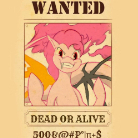Can we scold Sunset shimmer?
-
Similar Content
-
- 8,077 replies
- 372,082 views
-
- 1 reply
- 254 views
-
- 3 replies
- 744 views
-
- 20 replies
- 2,887 views
-
- 66 replies
- 15,463 views
-
-
Recently Browsing 0 members
- No registered users viewing this page.


.thumb.png.83e037ba7e453fda3377d3d6caa2743d.png)

Recommended Posts
Create an account or sign in to comment
You need to be a member in order to leave a comment
Create an account
Sign up for a new account in our community. It's easy!
Join the herd!Sign in
Already have an account? Sign in here.
Sign In Now